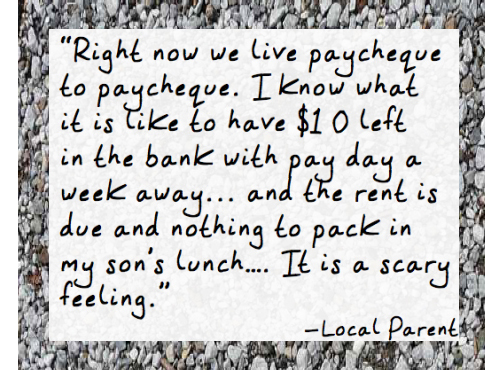Working at the Homeless Hub means becoming privy to a seemingly never-ending stream of data and research from experts in homelessness. Our staff are constantly working to update our resources, translate research papers into two-page research summaries and to highlight some of this information in social media through our Twitter feed and Facebook account.
Here are some highlights (good and bad) from the past week:
The Bringing Lethbridge Home Progress Report 2013 was released with some impressive findings to report. “The data collected from the 2012 Homeless Census indicated a 27% decrease in the total homeless population over the past year, the sheltered homeless population decreased by 25% in the last year while those living in absolute homeless decreased by 50%. A total of 99 people were identified as homeless in 2012 census, which is a 27 % decrease from 2011 (136). Since the Homeless Census was conducted in 2008, there has been a 93% decrease in absolute (street) homeless in Lethbridge to 2012.”
 Nelson Daily reports that unfortunately, statistics for Nelson, BC aren’t as positive as Lethbridge. The Nelson Cares Society released its 5th Annual Report Card on Homelessness and reported that: the number of emergency stays only decreased 4% between 2011 and 2012 (from 414 to 396) but the average stay increase by 3 days (from 9 days in 2011 to 12 days in 2012) for a 26% increase. Nutritional vulnerability and poverty meant that meals served at Our Daily Bread increased by 5% from 11,700 in 2011 to 12, 268 in 2012.
Nelson Daily reports that unfortunately, statistics for Nelson, BC aren’t as positive as Lethbridge. The Nelson Cares Society released its 5th Annual Report Card on Homelessness and reported that: the number of emergency stays only decreased 4% between 2011 and 2012 (from 414 to 396) but the average stay increase by 3 days (from 9 days in 2011 to 12 days in 2012) for a 26% increase. Nutritional vulnerability and poverty meant that meals served at Our Daily Bread increased by 5% from 11,700 in 2011 to 12, 268 in 2012.
Waterloo’s STEP Home (Support to End Persistent Homelessness) Program reports that, “For every dollar spent in the housing stability sector, $9.45 comes back to the community in social return.” They also share that managing and ending homelessness have two different price points: “Further, local research demonstrates that managing homelessness by providing emergency services is 10 times more expensive than ending homelessness by providing adequate housing and support.”
In an op-ed in the Winnipeg Free Press, Jino Distasio, the director of the Institute of Urban Studies and co-principal investigator for the Winnipeg site of the At Home/Chez Soi Project writes about the rooming house paradox. His article examines the horrible conditions of many of Canada’s rooming houses and the co-existing need for safe, affordable housing. He says, “Herein lies a paradox. While we know it is critical to have all Canadians live in safe, affordable housing, closing hundreds, if not thousands of rooms would put a massive burden on an already strained system.”
Our latest research summary examines education access for young women experiencing homelessness. The goal of the research by Jaskiran Dhillon was to document how young women who are homeless or living on the street describe their experiences within education. Read the full research summary here.

